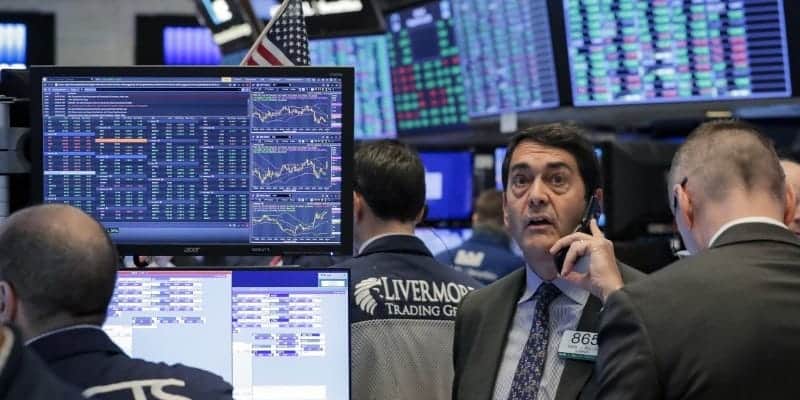Wall Street capped another turbulent week of trading Friday with a broad slide in stocks that left the S&P 500 with its third straight weekly loss.
The S&P 500 fell 1.1%, led once again by a sell-off in technology companies, with Apple, Amazon and Alphabet weighing particularly on the market. Technology stocks and other companies that powered the market’s strong comeback this year have suddenly lost momentum this month amid worries that they have become too expensive.
The sell-off tempered later in the afternoon but still wiped out what had been a solid start to the week. The S&P 500 is on track for its first monthly loss since March. September is historically the worst month for stocks.
“The market has been poised to just pull back, take a breather,” said Quincy Krosby, chief market strategist at Prudential Financial. “Raising capital is prudent during a month that is known statistically, historically for being difficult for the market.”
The S&P 500 fell 37.54 points to 3,319.47. The decline marks the the first three-week losing streak for the benchmark index since last October. The Dow Jones Industrial Average dropped 244.56 points, or 0.9%, to 27,657.42. The Nasdaq com- posite shed an early gain, losing 116.99 points, or 1.1%, to 10,793.28. Smaller stocks also fell, with the Russell 2000 index of small caps giving up 5.82 points, or 0.4%, to 1,536.78.
Stocks have swirled this week despite the Federal Reserve’s saying it expects to keep short-term interest rates at record lows through 2023. Low rates typically turbocharge the market by encouraging investors to pay higher prices for stocks, but some investors may have been looking for the Fed to be even more aggressive.
Growth in some areas of the economy has also slowed after unemployment benefits and other aid from the federal government expired, and partisan disagreements in Congress are holding up a possible renewal of support. Investors say it’s essential that such aid arrives.
“To the extent that you don’t get an additional fiscal cushion, the economy is going to be impacted by it,” said Brian Levitt, global market strategist at Invesco.
Rising tensions between the world’s two largest economies are also continuing to keep markets on edge. The United States said on Friday that it will ban downloads of the Chinese apps TikTok and WeChat on Sunday. It cited national security and data privacy concerns.
President Donald Trump’s targeting of the Chinese tech industry has caused intermittent worries in the market about a possible retaliation against the U.S. industry.
Big Tech stocks have stumbled sharply this month on worries that their prices have grown too expensive following their virtuosic performance through the pandemic. Surging shares of Apple, Microsoft, Amazon and others helped carry Wall Street back to record heights, even as the pandemic walloped much of the economy, as the coronavirus accelerated work-from-home and other trends that benefit them.
But they suddenly lost momentum two weeks ago, causing the market to swing with them. Because these companies have grown so massive, their stock movements have huge sway over broad market indexes, such as the S&P 500.
“We certainly got a little short-term overbought and we headed into a time of the year that is not great for markets,” Levitt said.
On Friday, several Big Tech stocks continued slipping. Apple dropped 3.2%, Microsoft fell 1.2% and Amazon slid 1.8%.
Also on the long list of concerns for markets is how the pandemic progresses, whether a vaccine for COVID-19 could indeed be available in early 2021 as many investors expect and what November’s U.S. presidential election will do to the economy.

